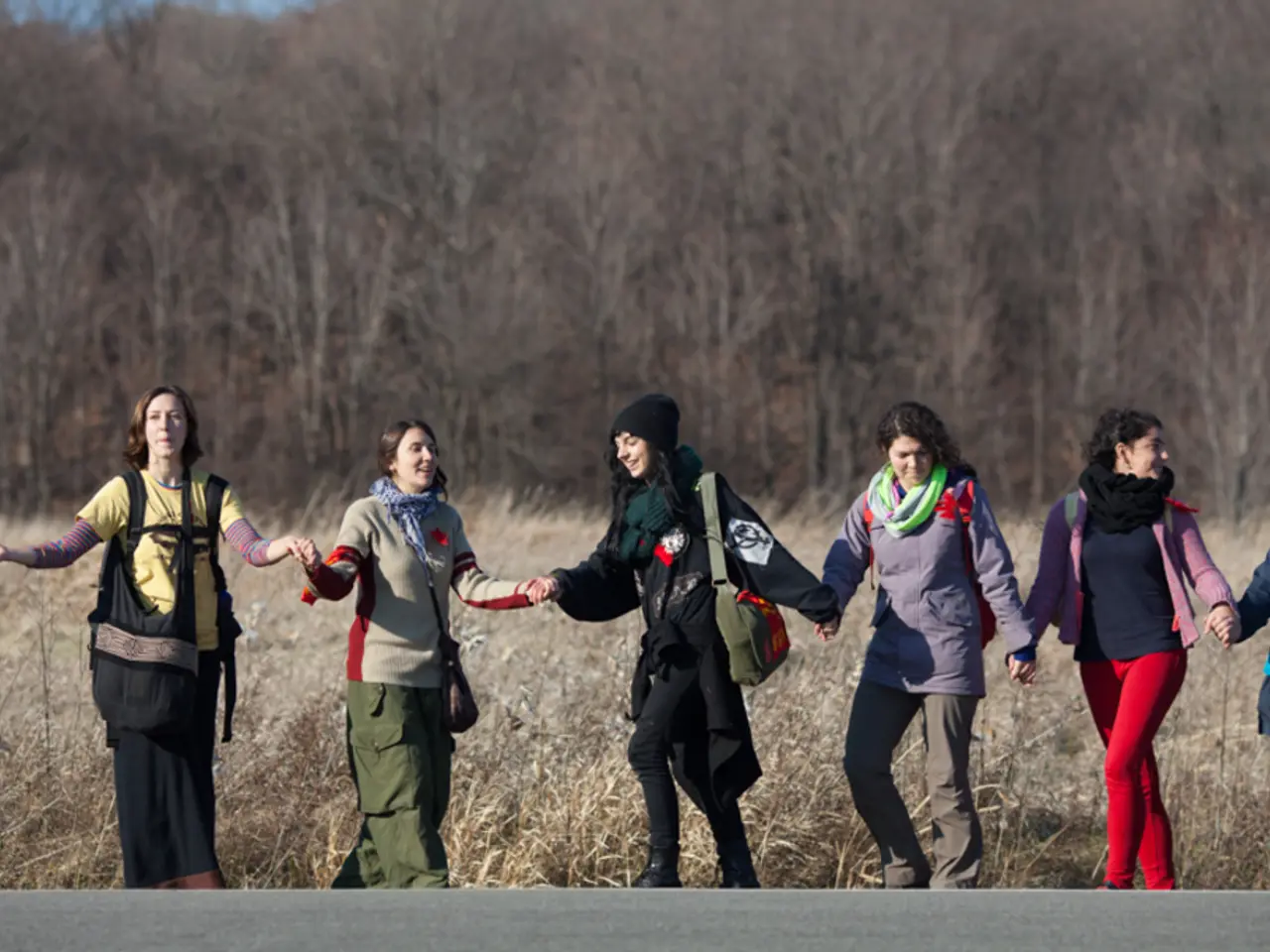Interview: Empowered African Indigenous Women Asserting Their Rights and Identities
In Africa, organisations like Brot für die Welt and FIMI are working tirelessly to strengthen the land and environmental rights of indigenous women and their communities. One such success story involves the support given to the San indigenous group in resisting land sales and raising awareness of gender-specific violence against women in conflict zones.
FIMI, in particular, provides financial and technical support to strengthen women's leadership in land governance and environmental justice. Through the AYNI Indigenous Women's Fund, FIMI supports indigenous women's organisations in implementing projects focused on securing land and territorial rights, raising awareness of environmental rights, and documenting traditional land use and ecological knowledge.
Unfortunately, challenges remain. The ongoing eviction of the Ogiek people from the Mau Forest by the Kenya Forest Service (KFS) and Kenya Wildlife Service (KWS) continues, despite a landmark ruling by the African Court on Human and Peoples' Rights in May 2017 recognising the Ogiek's claim to the Mau Forest. Government agencies claim these evictions are necessary to prevent encroachment and deforestation.
Indigenous women in Africa, particularly those in pastoralist and forest-dependent communities, are facing increased physical burden and risks due to climate change. They are forced to travel longer distances for water, food, and firewood. Climate change is eroding women's well-being, status, and resilience, making them among the most vulnerable to the climate crisis.
However, indigenous women are not just victims; they are leaders in finding sustainable solutions. They are planting drought-resistant crops in household kitchen gardens to ensure food security during harsh climate conditions. Indigenous-led innovations can offer sustainable, low-cost, and culturally appropriate solutions that national climate policies can learn from to strengthen both climate resilience and community well-being.
Indigenous women are also leading efforts to diversify livelihoods through initiatives such as beadwork, beekeeping cooperatives, herbal medicine trade, eco-tourism, and tree nurseries. They are applying traditional knowledge to adapt to and mitigate the impacts of climate change, such as using energy-saving cooking stoves and producing briquettes from organic waste.
Indigenous women are reviving rotational grazing systems among pastoralist communities to prevent land degradation and support sustainable pasture management in the face of drought. They are also combating the displacement caused by climate-induced migration, leading initiatives to preserve cultural practices, spiritual connections, and social safety nets.
A new report by the International Indigenous Women's Forum (FIMI) highlights the widespread and persistent loss of Indigenous territories in Africa, often driven by government, corporate, and other interests. There are growing concerns that these removals are linked to emerging carbon credit schemes, where forests are monetised for climate mitigation without the free, prior, and informed consent of Indigenous custodians.
Many challenges remain, including governments and corporate actors pursuing land-based projects without consulting Indigenous women, legal frameworks in many African countries that fail to recognise communal land rights or exclude women from land ownership, and security risks and political marginalization that silence many Indigenous women land defenders.
Despite these challenges, the resilience and determination of indigenous women in Africa shines through. Their efforts towards sustainable solutions offer hope for a future where both the environment and communities can thrive.
Read also:
- visionary women of WearCheck spearheading technological advancements and catalyzing transformations
- Recognition of Exceptional Patient Care: Top Staff Honored by Medical Center Board
- A continuous command instructing an entity to halts all actions, repeated numerous times.
- Oxidative Stress in Sperm Abnormalities: Impact of Reactive Oxygen Species (ROS) on Sperm Harm








